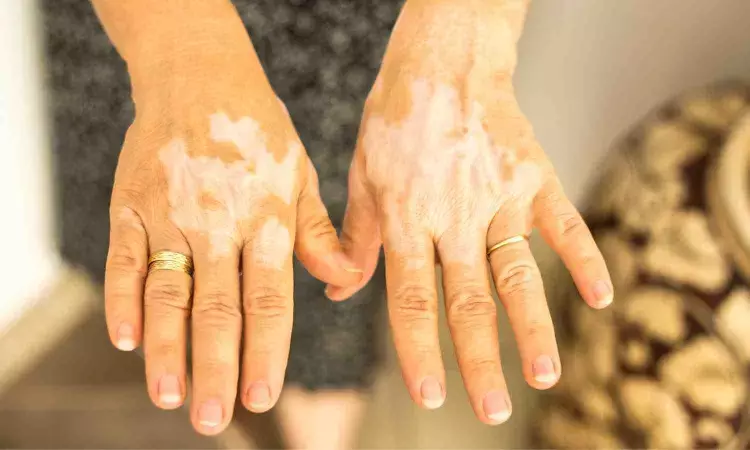- Home
- Medical news & Guidelines
- Anesthesiology
- Cardiology and CTVS
- Critical Care
- Dentistry
- Dermatology
- Diabetes and Endocrinology
- ENT
- Gastroenterology
- Medicine
- Nephrology
- Neurology
- Obstretics-Gynaecology
- Oncology
- Ophthalmology
- Orthopaedics
- Pediatrics-Neonatology
- Psychiatry
- Pulmonology
- Radiology
- Surgery
- Urology
- Laboratory Medicine
- Diet
- Nursing
- Paramedical
- Physiotherapy
- Health news
- Fact Check
- Bone Health Fact Check
- Brain Health Fact Check
- Cancer Related Fact Check
- Child Care Fact Check
- Dental and oral health fact check
- Diabetes and metabolic health fact check
- Diet and Nutrition Fact Check
- Eye and ENT Care Fact Check
- Fitness fact check
- Gut health fact check
- Heart health fact check
- Kidney health fact check
- Medical education fact check
- Men's health fact check
- Respiratory fact check
- Skin and hair care fact check
- Vaccine and Immunization fact check
- Women's health fact check
- AYUSH
- State News
- Andaman and Nicobar Islands
- Andhra Pradesh
- Arunachal Pradesh
- Assam
- Bihar
- Chandigarh
- Chattisgarh
- Dadra and Nagar Haveli
- Daman and Diu
- Delhi
- Goa
- Gujarat
- Haryana
- Himachal Pradesh
- Jammu & Kashmir
- Jharkhand
- Karnataka
- Kerala
- Ladakh
- Lakshadweep
- Madhya Pradesh
- Maharashtra
- Manipur
- Meghalaya
- Mizoram
- Nagaland
- Odisha
- Puducherry
- Punjab
- Rajasthan
- Sikkim
- Tamil Nadu
- Telangana
- Tripura
- Uttar Pradesh
- Uttrakhand
- West Bengal
- Medical Education
- Industry
Study Finds No Clear Link Between Vitiligo and Cancer Risk

Researchers have discovered that patients with vitiligo, a chronic autoimmune skin disorder that occurs in 1-2% of the world's population, do not seem to have a substantially elevated or diminished overall risk for developing cancer. The results indicate that there are no consistent associations between vitiligo and malignancy. The study was conducted by Alzahra and colleagues published in the journal of Dermatology and Therapy.
The meta-analysis was performed in line with PRISMA 2020 and registered on PROSPERO (CRD42023483130). Researchers performed an extensive literature search on Medline, EMBASE, and the Cochrane Library. Among 7,753 records identified, 6,378 were left after removing duplicates, and eventually 12 studies were included in the final review. Of these, six studies yielded data that were appropriate for quantitative meta-analysis.
Overall, the combined sample was representative of 3,267,951 participants, 289,322 of whom had vitiligo. Analysis focused specifically on malignancy risks for melanoma, non-melanoma skin cancer, and lymphoma—three cancer groups previously suspected to be affected by vitiligo-associated immune mechanisms.
Key Findings
• 12 studies were included in the final review.
• 6 studies were meta-analysis eligible.
• Total sample size: 3,267,951 participants.
•Vitiligo patients: 289,322 individuals.
• Pooled hazard ratio (HR) for lymphoma: 1.00 (95% CI 0.40–2.53), showing no significant increase in risk.
• Pooled HR for melanoma: 0.80 (95% CI 0.27–2.34), suggesting no consistent association and a possible—but unproven—protective effect.
• Pooled HR for non-melanoma skin cancer: 0.38 (95% CI 0.00–732.76), a highly variable result reflecting study heterogeneity.
This wide-ranging meta-analysis, encompassing more than 3.2 million participants, failed to identify any obvious correlation between cancer risk and vitiligo. While a protective role against certain malignancies remains a possibility, the enormous heterogeneity of study findings makes interpretation of conclusions highly cautious. Greater methodological rigor is needed to characterize the actual relationship between vitiligo and malignancy risk.
Reference:
Mohammed, A.A., Lengyel, A.S., Meznerics, F.A. et al. Cancer Risk in Vitiligo: No Evidence of Increased Prevalence—A Systematic Review and Meta-analysis. Dermatol Ther (Heidelb) (2025). https://doi.org/10.1007/s13555-025-01520-0
Dr Riya Dave has completed dentistry from Gujarat University in 2022. She is a dentist and accomplished medical and scientific writer known for her commitment to bridging the gap between clinical expertise and accessible healthcare information. She has been actively involved in writing blogs related to health and wellness.
Dr Kamal Kant Kohli-MBBS, DTCD- a chest specialist with more than 30 years of practice and a flair for writing clinical articles, Dr Kamal Kant Kohli joined Medical Dialogues as a Chief Editor of Medical News. Besides writing articles, as an editor, he proofreads and verifies all the medical content published on Medical Dialogues including those coming from journals, studies,medical conferences,guidelines etc. Email: drkohli@medicaldialogues.in. Contact no. 011-43720751


